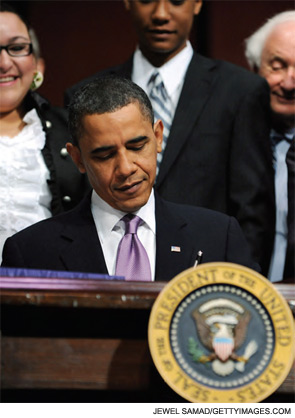The federal government’s proposed rule establishing incentive payments for physicians who “meaningfully use” electronic health records (EHRs) is too onerous and would discourage physicians from participating, some otolaryngologists say.


The federal government’s proposed rule establishing incentive payments for physicians who “meaningfully use” electronic health records (EHRs) is too onerous and would discourage physicians from participating, some otolaryngologists say.

This issue of ENT Today includes an article on the debate over canal-wall-up (CWU) versus canal-wall-down (CWD) tympanomastoidectomy (p. 5). I remember hearing the same arguments when I was a resident at UCLA, which was also the last time I drilled a mastoid bone; my practice focused on head and neck surgery and pediatric otolaryngology. Over the past 32 years, Drs. Bruce Gantz, Rick Chole (two of my otology colleagues on the Board of Otolaryngology), and other otologist friends have suffered through my semi-tongue-in-cheek comments on why otologists can’t agree on which procedure is better. Although the technology used in both procedures has evolved, the final product of the two procedures, a dry, safe ear, is, as best I can tell, the same as it was when I was a resident. I have been told that one of the main factors considered in the decision regarding which procedure to perform is where the otologist trained.

The new health system reform law is expected to reduce the number of uninsured Americans by 32 million people, and that means more paying patients for physician practices. Many doctors, however, worry that the law’s lack of Medicare payment reform and medical malpractice caps will exacerbate a looming physician shortage. This raises questions about how successful the law will be in increasing health care access.
In February, the Centers for Medicare and Medicaid Services (CMS) began rolling out its national Recovery Audit Contractor (RAC) program, aimed at ferreting out improper payments and preventing fraud, waste and abuse in the Medicare system. If you bill for Medicare fee-for-service, you are fair game for a RAC audit. A three-year demonstration of the RAC program, which ended in March 2008, heavily targeted bronchoscopy, injectable drugs and IV hydration therapy. But auditors are rapidly expanding the list, and the permanent program will include adenoidectomies, tonsillectomies, thyroidectomies and other otolaryngology-related procedures.

A push at the national level to fund more comparative effectiveness research could mean more information for otolaryngologists about which treatments work best for a given condition and in which patients.

Otolaryngologists understand that even their most loyal patients, with finances ravaged by the lingering economic recession, may postpone or forego endoscopic sinus surgery, tonsillectomy or a chemical facial peel in favor of paying the mortgage.

Donald Palmisano, Esq., MD, believes the key to curing the health care crisis in the U.S. involves respecting the sacredness of the doctor-patient relationship and capping the size of malpractice awards.

Electronic medical records (EMRs) are costly and require significant staff time to implement but have the potential to bring huge benefits to patients and doctors alike, said speakers at the Triological Society’s Combined Sections Meeting held here Feb. 4-7.
Beyond the handful of long-established and well-integrated sites being labeled as de facto accountable care organizations (ACOs), advocates are seizing the moment and pushing for a bold vision of what role ACOs will play in the movement to reform the health care payment system across the country.

On Feb. 17, 2009, President Obama signed into law the American Recovery and Reinvestment Act of 2009 (commonly referred to as ARRA or the Stimulus Bill) which includes the Health Information Technology for Economic and Clinical Health (HITECH) Act. The HITECH Act includes significant changes to the Health Insurance Portability and Accountability Act of 1996 (HIPAA) that affect otolaryngologists and other health care providers, as well as those who process or work with health care information. Below is a summary of how these new provisions, many of which go into effect this Feb. 17, will affect your practice.